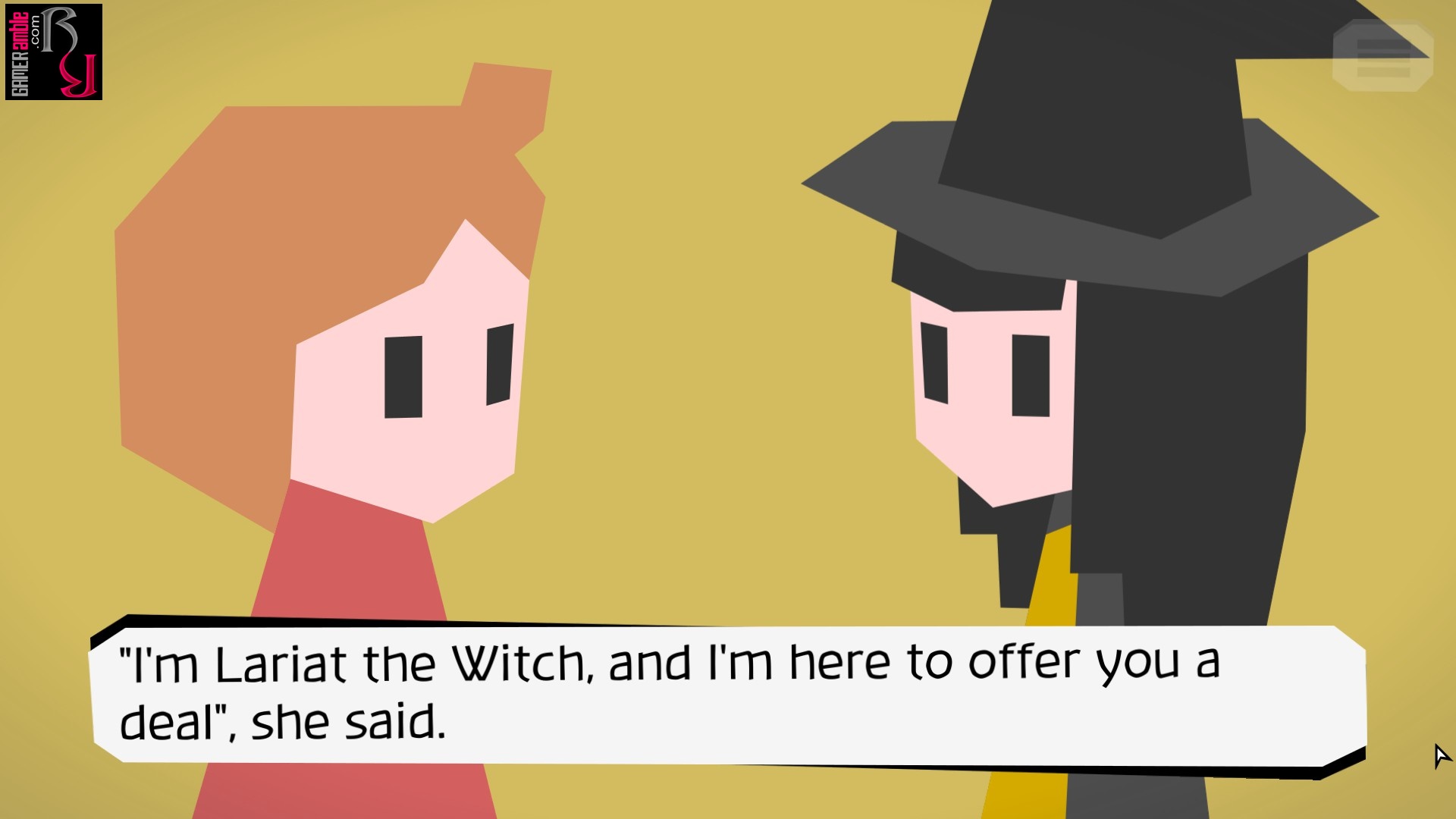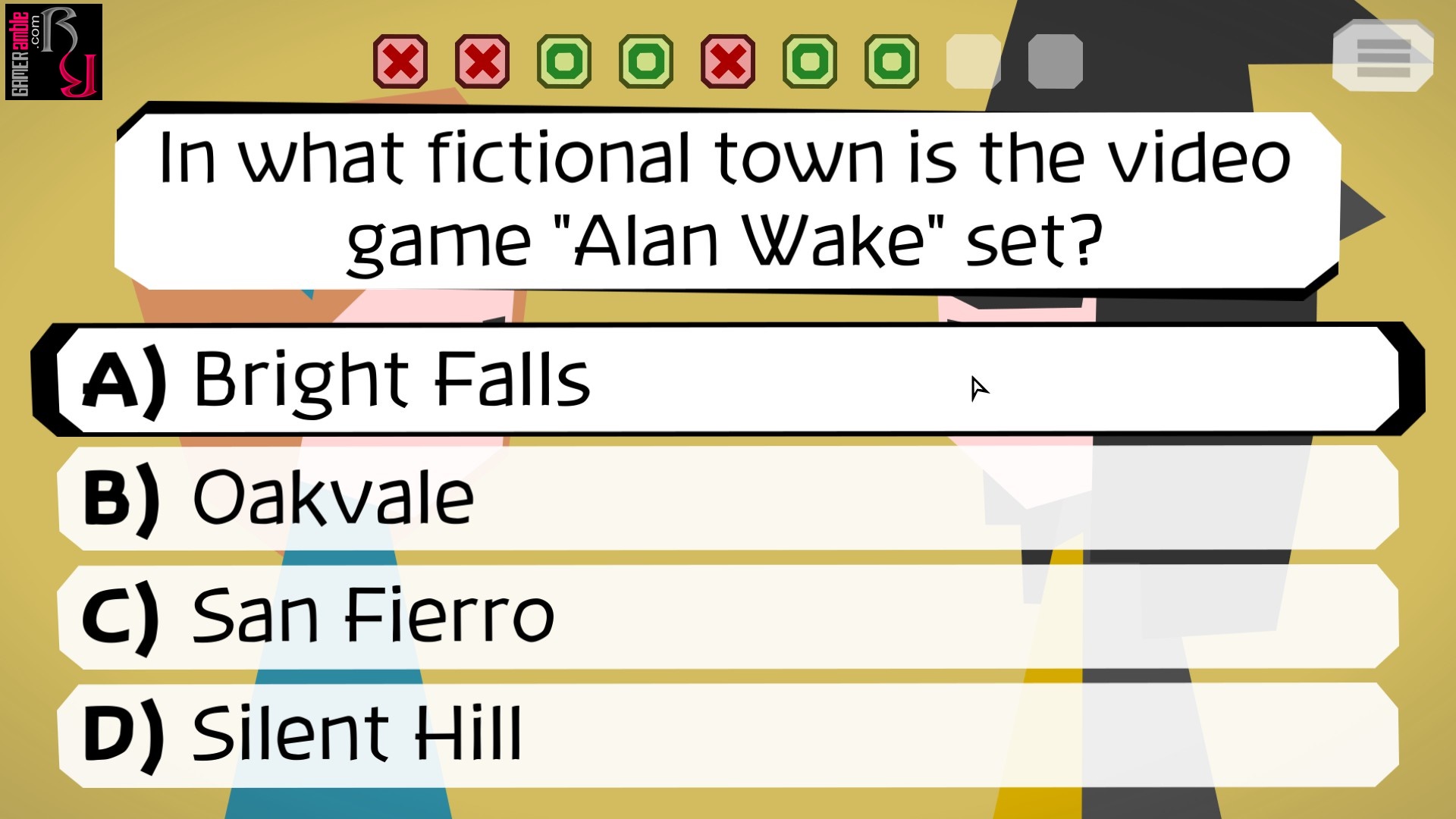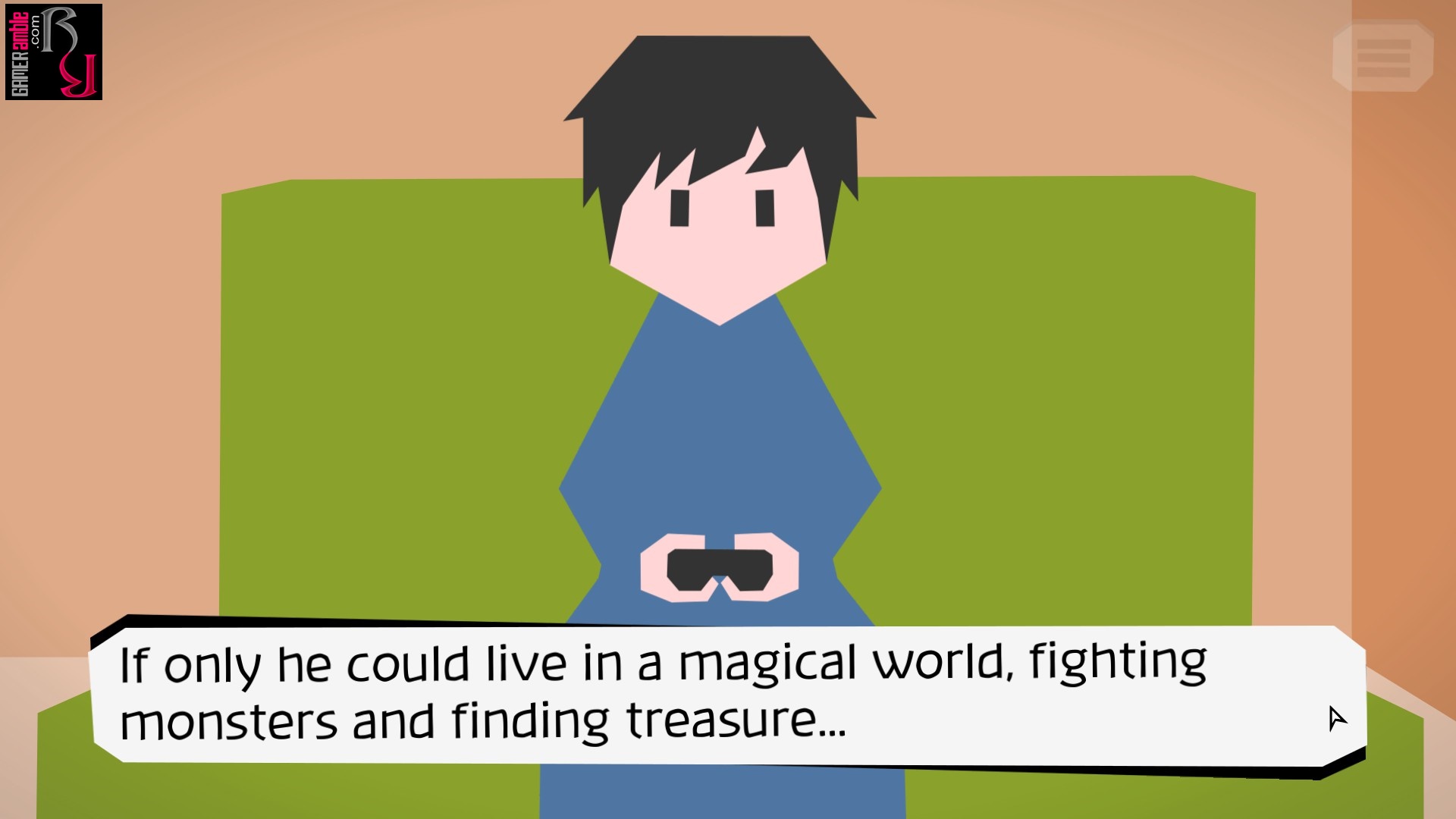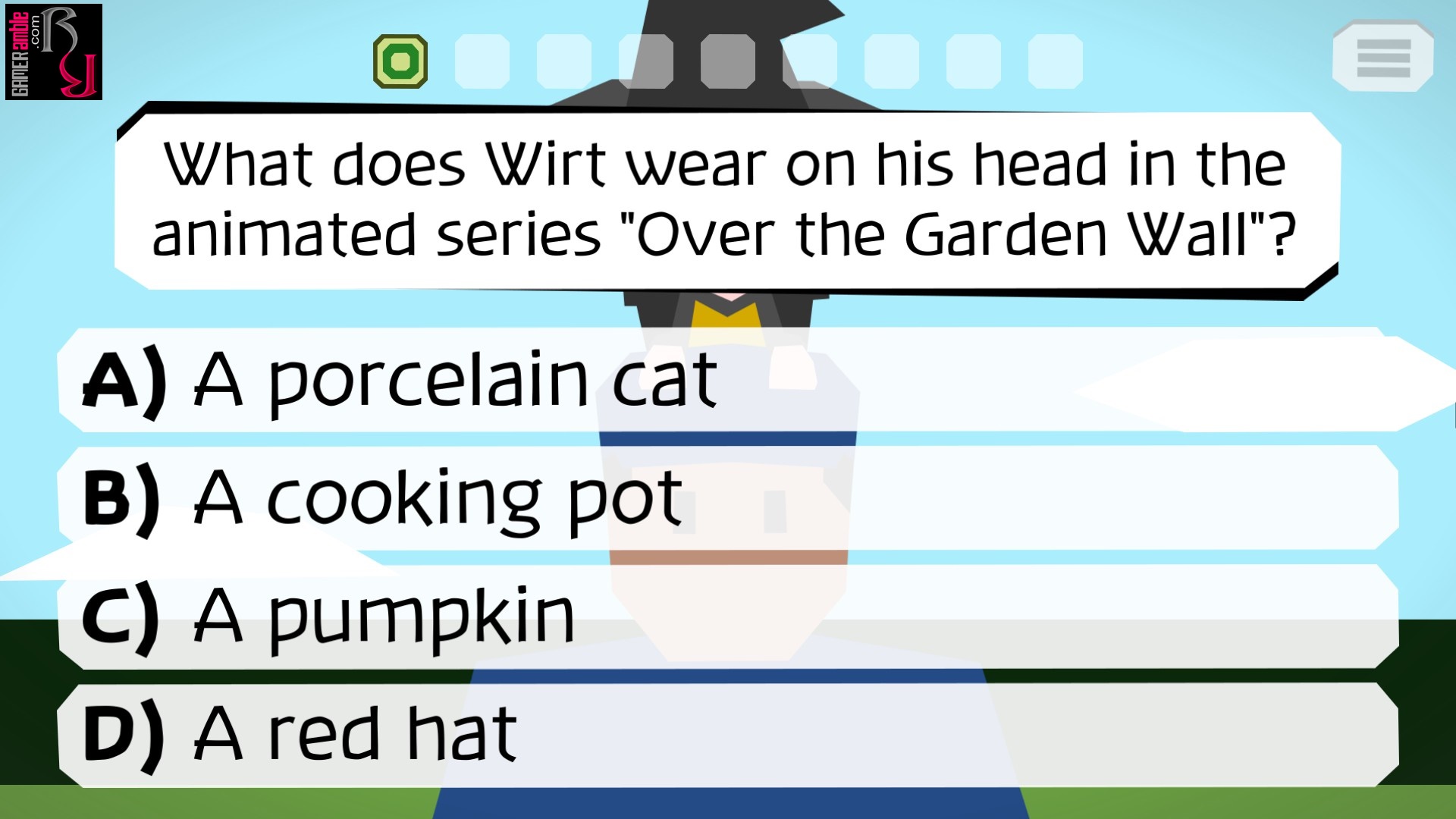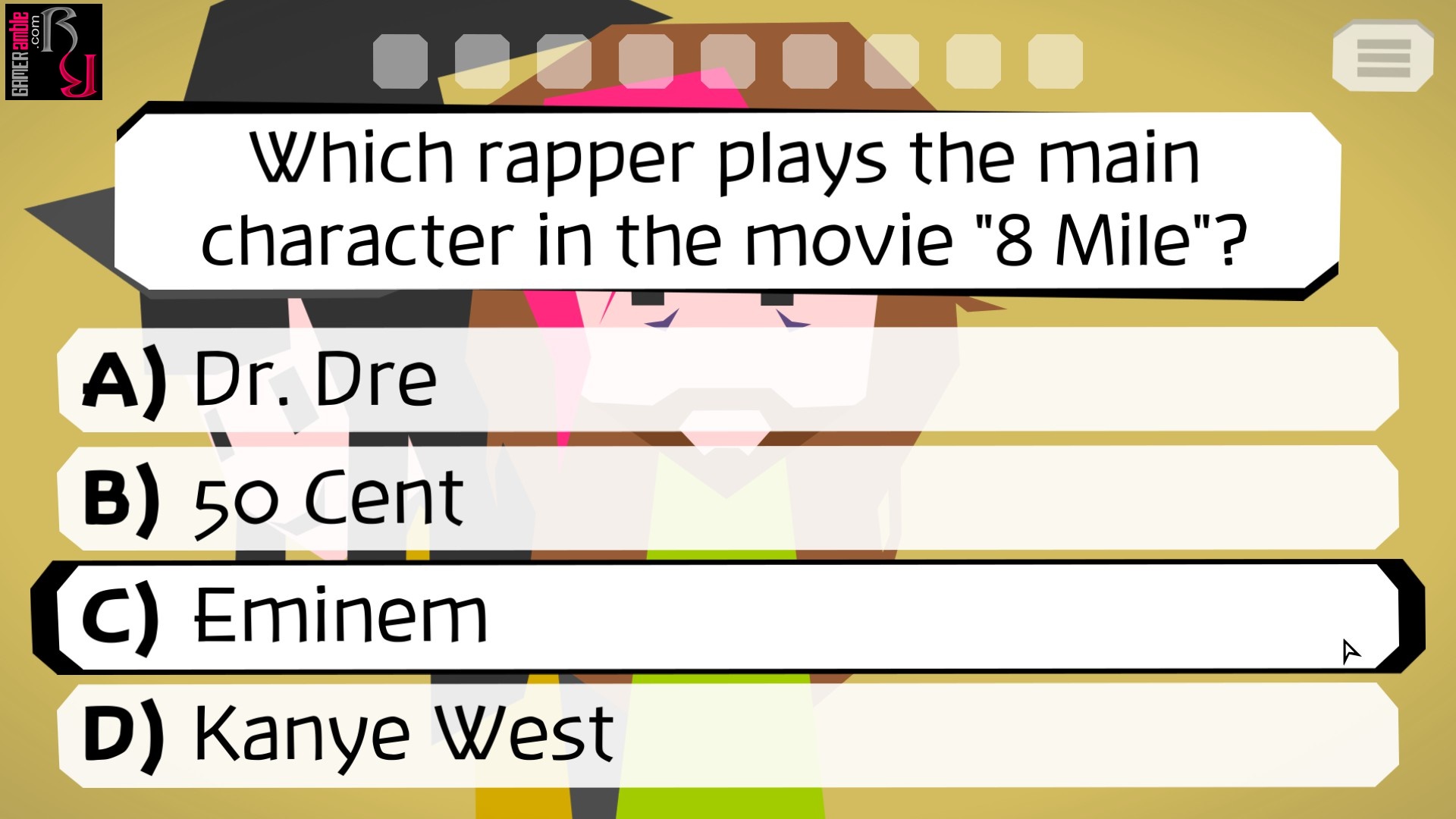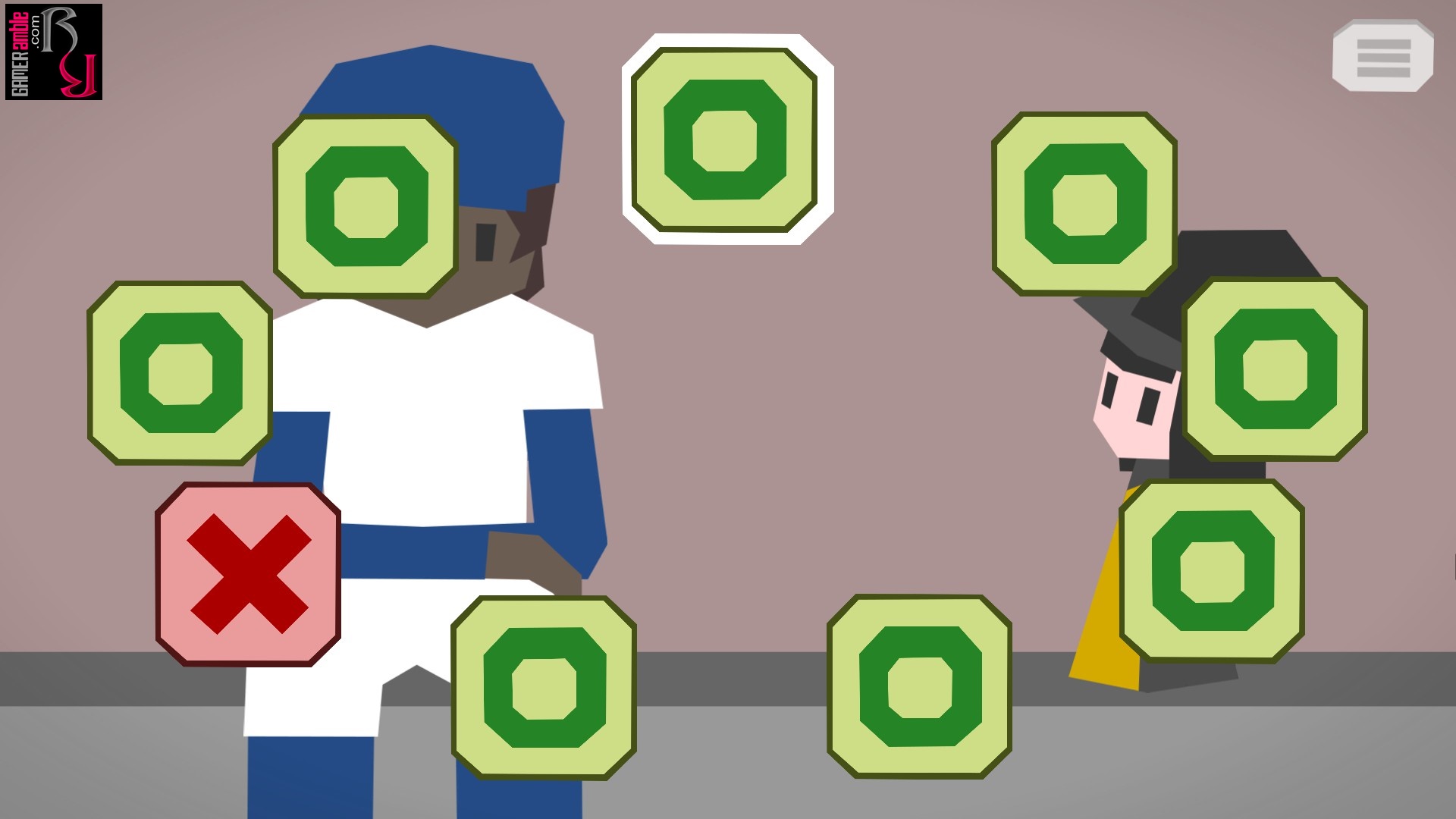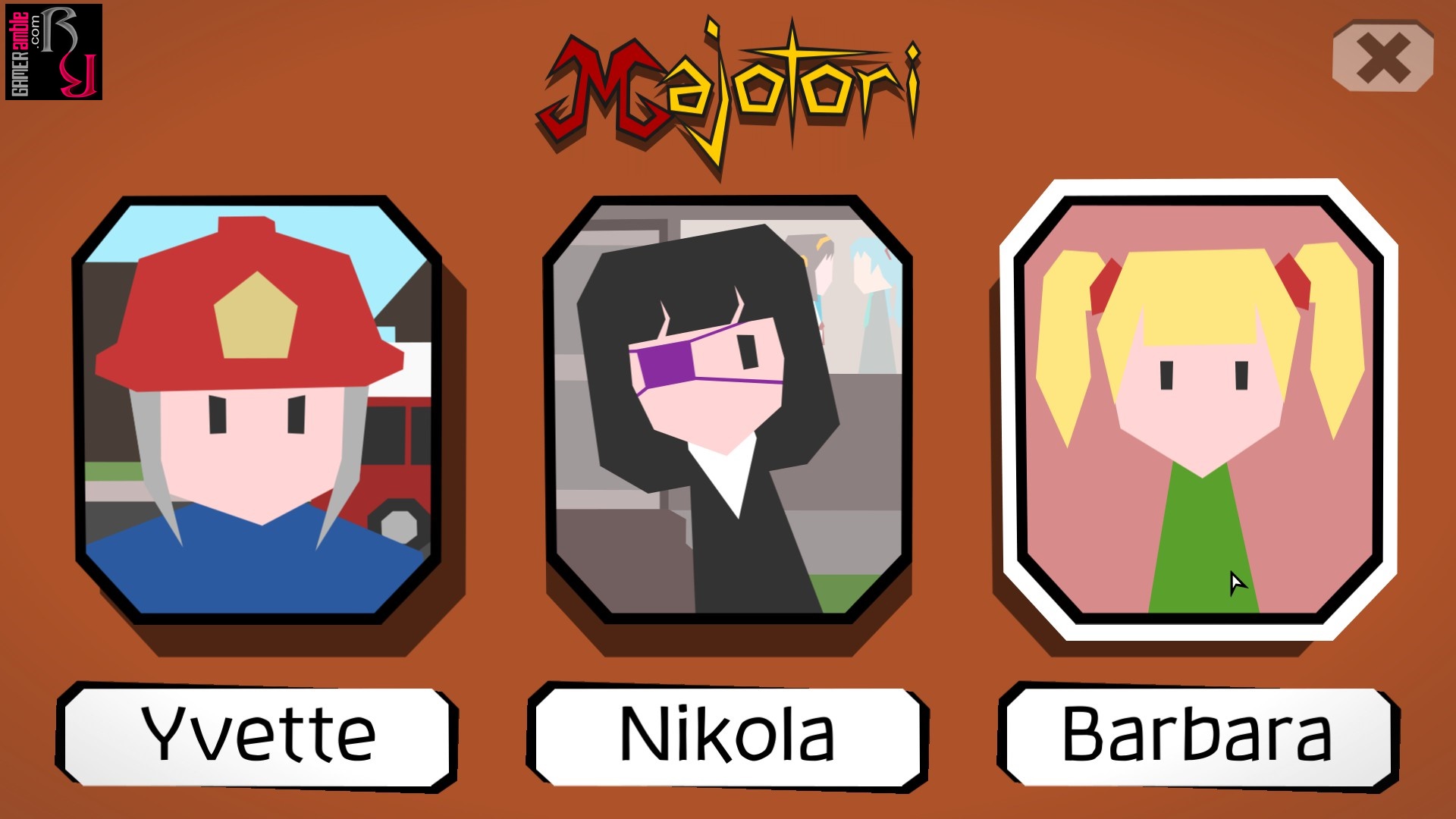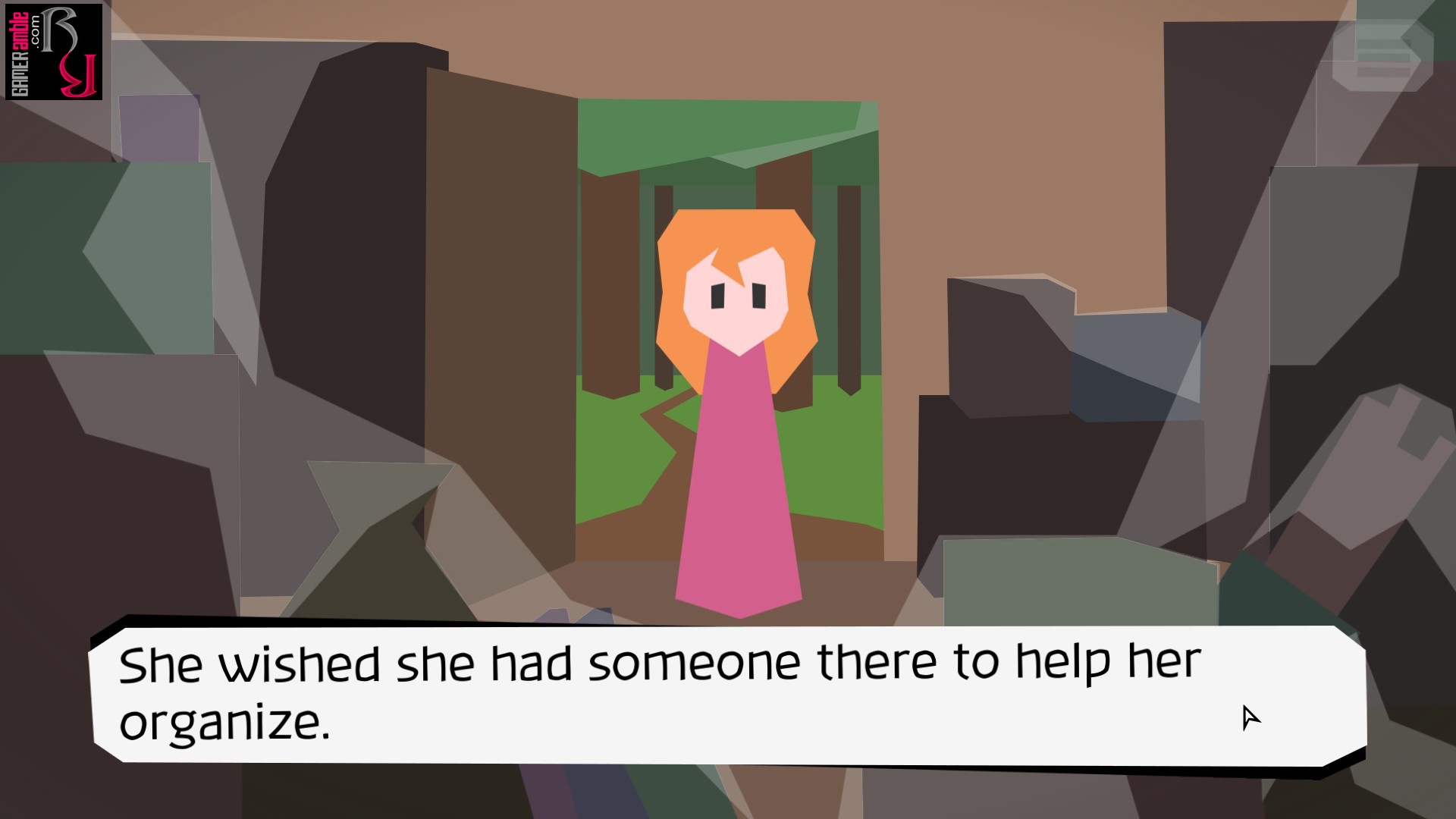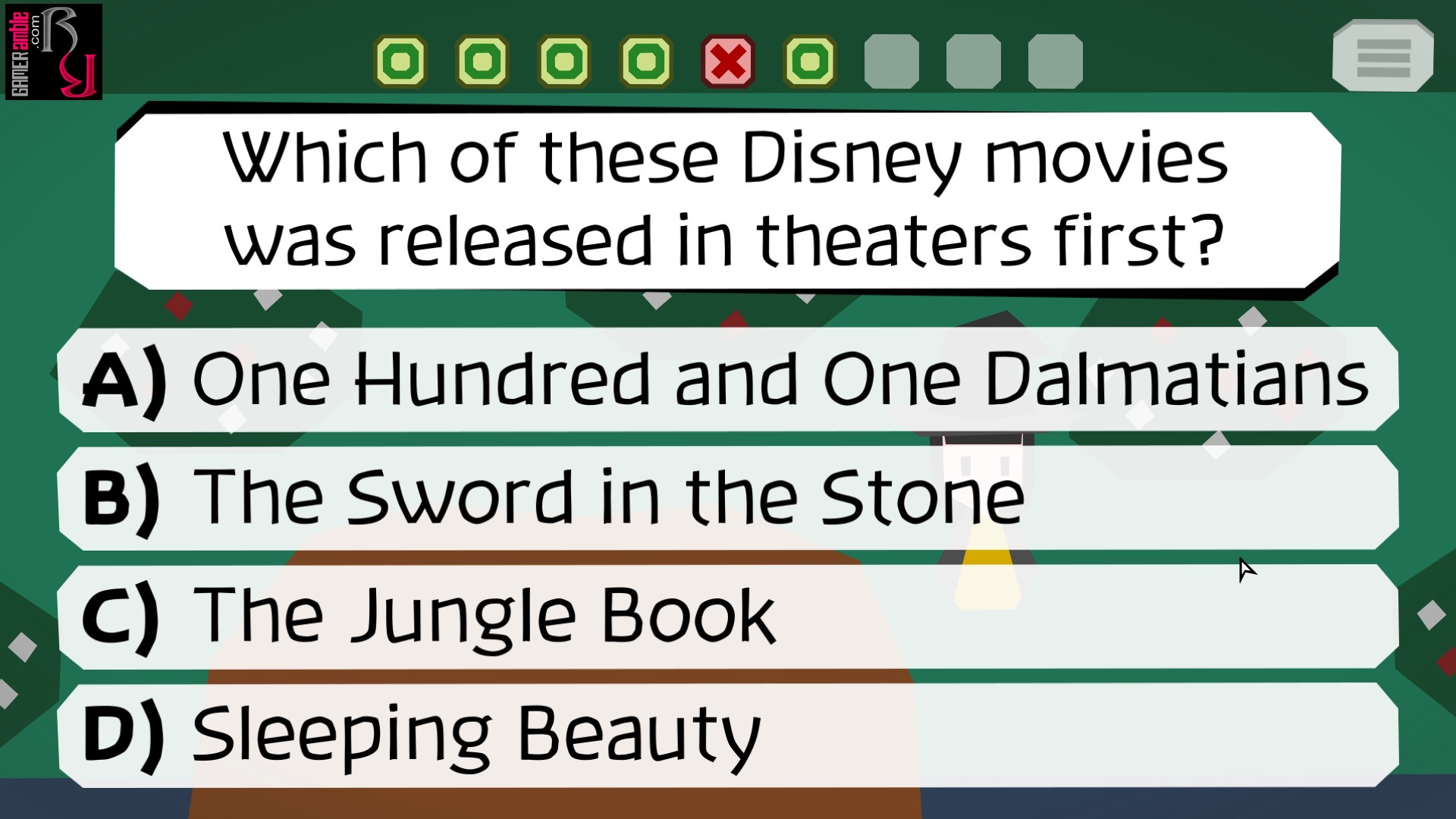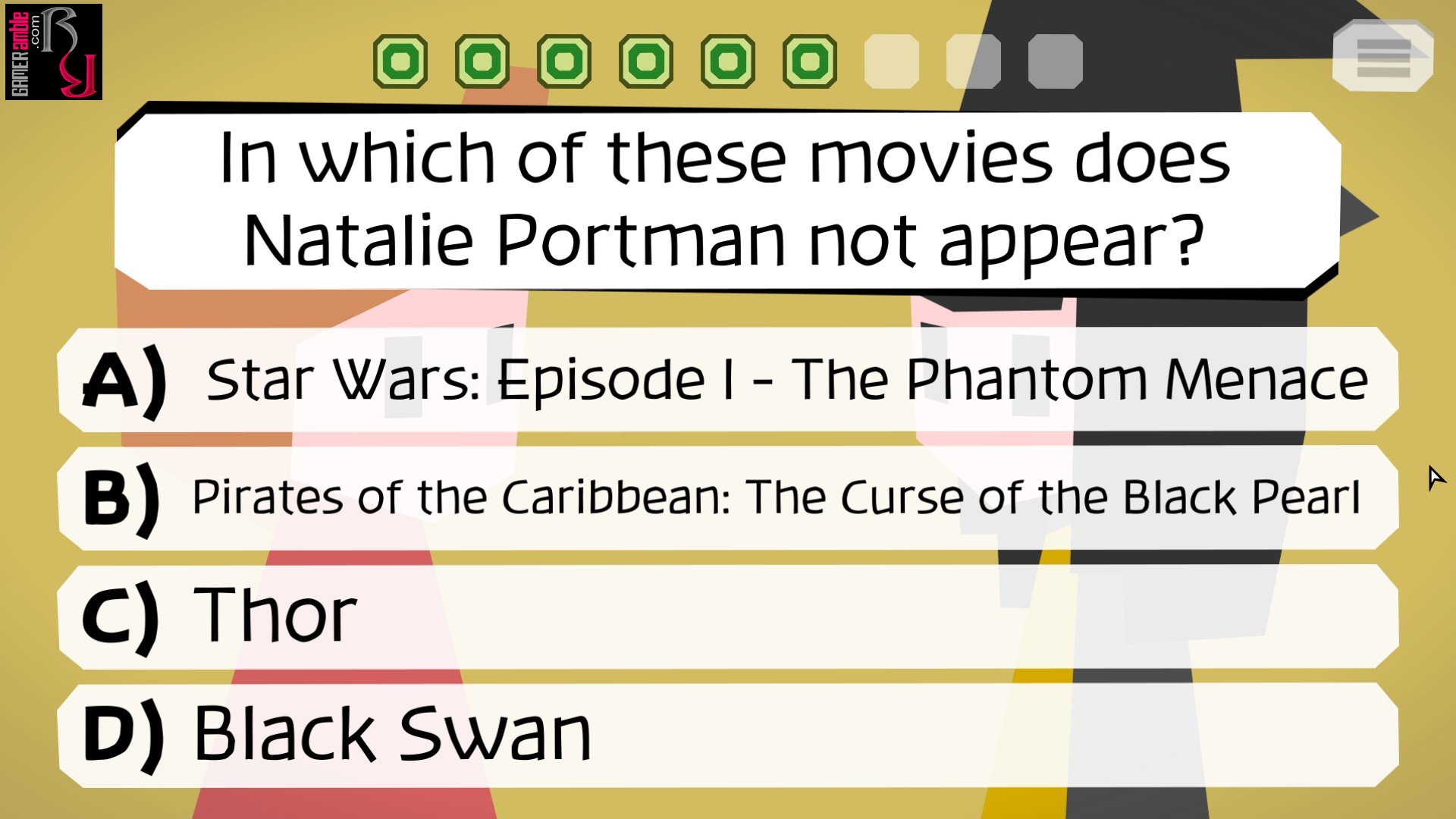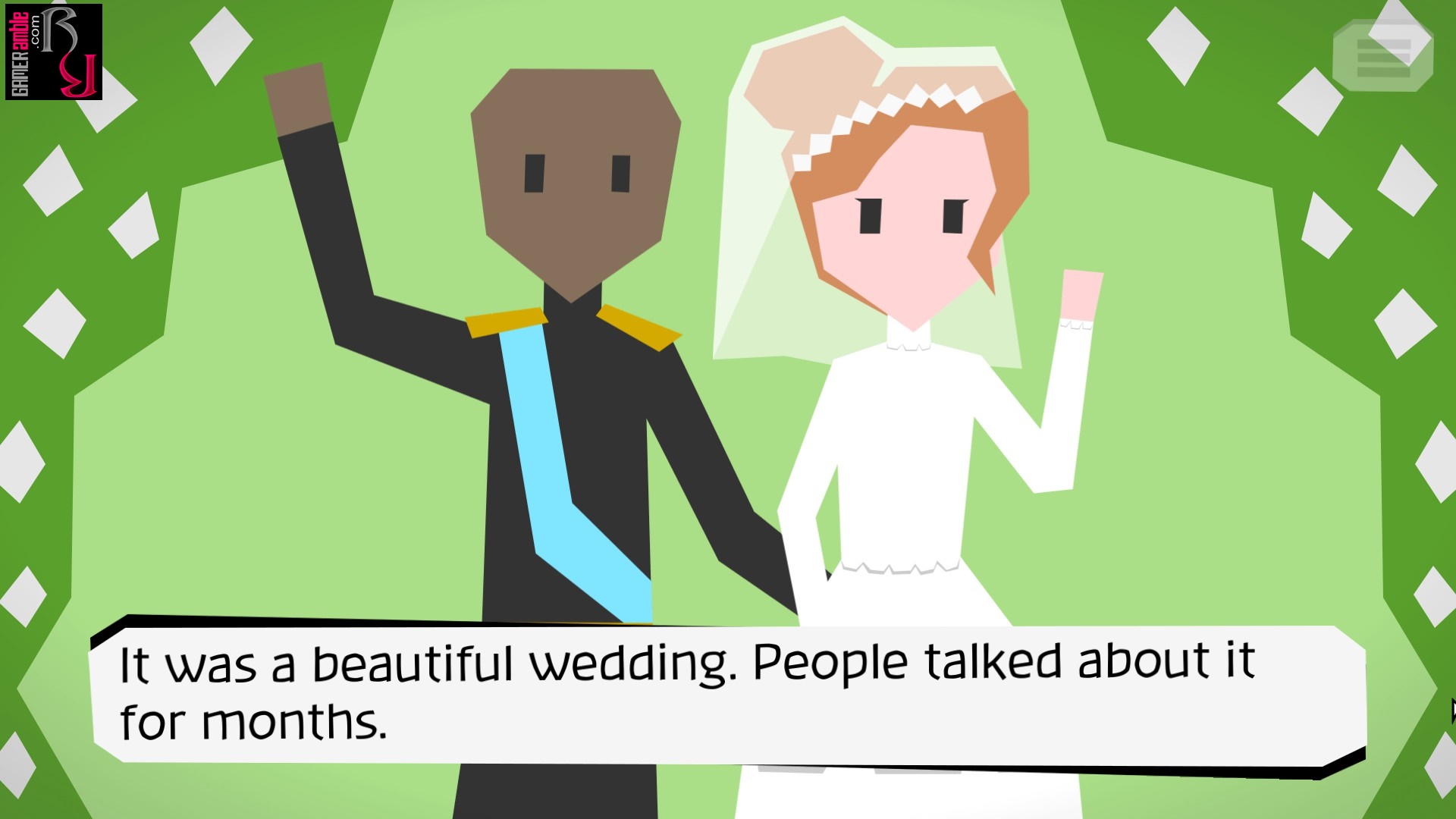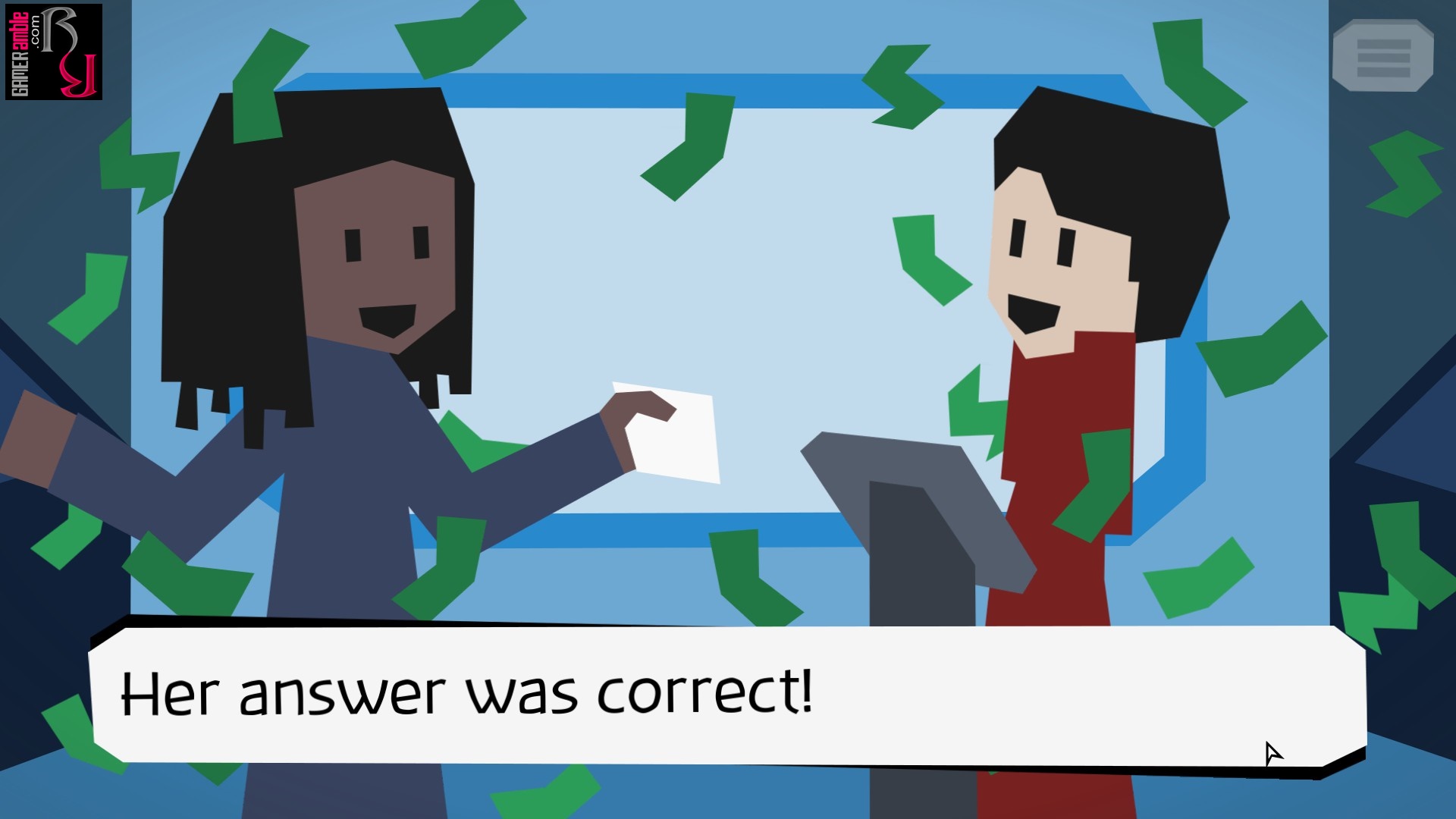Majotori
Developer: Majorariatto | Publisher: Majorariatto | Release Date: 2017 | Genre: Casual / Adventure / Indie | Website: Official Website | Purchase: Steam
Wouldn’t it be great if your knowledge of all things geek could be used to make your wishes come true? That’s pretty much the premise for Majotori, a small indie game that the developers describe as a “narratrvia.” Majotori combines an interactive narrative with a quiz game to deliver an experience that is a lot more unique than what we usually see from the genre.
Majotori features a wacky cast of characters who players can follow across more than 50 branching storylines. Each of them has a wish and it is up to players to help them make fulfill this wish by answering a bunch of geeky questions. Before the trivia sections a short, vector-style style cut-scene plays, which depicts the scene and the arrival of Lariat, a little witch with the power to grand wishes. Once it is established what the characters are wishing for players are presented with a series of questions. For each question players can choose from four answers, but only one is correct. Getting all the questions right automatically grants the wish, while getting them all wrong is an automatic fail. Answering some of the questions correctly and others wrong is where things get interesting as Lariat then spins a wheel. The spot where the wheel stops determines the outcome, which means even if players get only one wrong answer there’s still a chance for the wish to fail if it lands on that spot. Don’t worry as the story for characters continues even if their wishes fail, although the results are usually a lot more tragic.
With more than a thousand questions in four categories, which include video games, cinema, anime, and miscellaneous, there’s plenty of variety in Majotori. Of course, not everyone is knowledgeable in everything, so the game does allow players to customize the frequency of categories. While it’s not possible to exclude certain categories entirely, it does allow players to stick to what they know best. Overall, we really enjoyed the questions and they are certainly a step up from the same boring trivia found in other games. After completing the game twice to get all the achievements we also didn’t encounter the same questions, which is a good thing.
Although the questions are fun it is the characters and their stories that are the real stars of the game. From a dog whose fondest wish is that the moon will howl back at it to a teen who wants to be a star on YouTube, there’s plenty of humor and variety in these story sections. Sometimes the outcome of failing is quite tragic (there’s even an achievement for causing someone to die), but even success doesn’t always guarantee a happy ending. Some of the stories continue after a character has their wish granted and ends up asking Lariat for another wish as they are not happy with the results. It’s impossible to see all of these branches in a single playthrough, so the game does provide an incentive for multiple replays.
Visually, Majotori is a simple-looking game with vector graphics that almost makes it look like a South Park episode. The short cut-scenes are very creative and the combination of dialogue and animations had us laughing out loud on a few occasions. Majorori also features a very fitting soundtrack with some whimsical tunes to accompany the action. The music definitely added to the lighthearted feel of the game and our favorite track is the one accompanying the section with the dog as it features actual barking in the song. Unfortunately, Majotori lacks voice acting, but this is understandable for a small indie title. The game is very simple to control as all players have to do is select the character whose wish they want to experience and then select the correct answer from a list of four options.
We enjoyed Majotori enough to complete it twice and get all the achievements, but it is also not a game that will appeal to everyone. Players who consider themselves experts in all things geek should definitely try it out to put their knowledge to the test, but more casual players might find themselves stumped by some of the categories. It is also easy to overlook Majotori because it is a trivia game, which by its very nature is very niche, especially as it is not a multiplayer party game with very broad categories. To do so would be a pity, though, as the writing is really clever, and the occasional dark humor makes for a very memorable experience.
System Requirements
- Minimum PC System Requirements
- Minimum Mac OS X System Requirements
- Minimum SteamOS + Linux System Requirements
- OS: Windows 7
- Processor: Dual Core
- Memory: 1 GB RAM
- Graphics: ATI Radeon HD 4850 or NVIDIA GeForce 9600 GT
- DirectX: Version 9.0c
- Storage: 150 MB available space
- Sound Card: DirectX compatible sound card
- Additional Notes: Mouse, keyboard or Gamepad support
- OS: Mac OS X 10.11+
- Processor: Dual Core
- Memory: 1 GB RAM
- Graphics: ATI Radeon HD 4850 or NVIDIA GeForce 9600 GT
- Storage: 200 MB available space
- Sound Card: DirectX compatible sound card
- Additional Notes: Mouse, keyboard or Gamepad support
- OS: Ubuntu 14.04+, SteamOS+
- Processor: Dual Core
- Memory: 1 GB RAM
- Graphics: ATI Radeon HD 4850 or NVIDIA GeForce 9600 GT
- Storage: 200 MB available space
- Sound Card: DirectX compatible sound card
- Additional Notes: Mouse, keyboard or Gamepad (XInput) support


